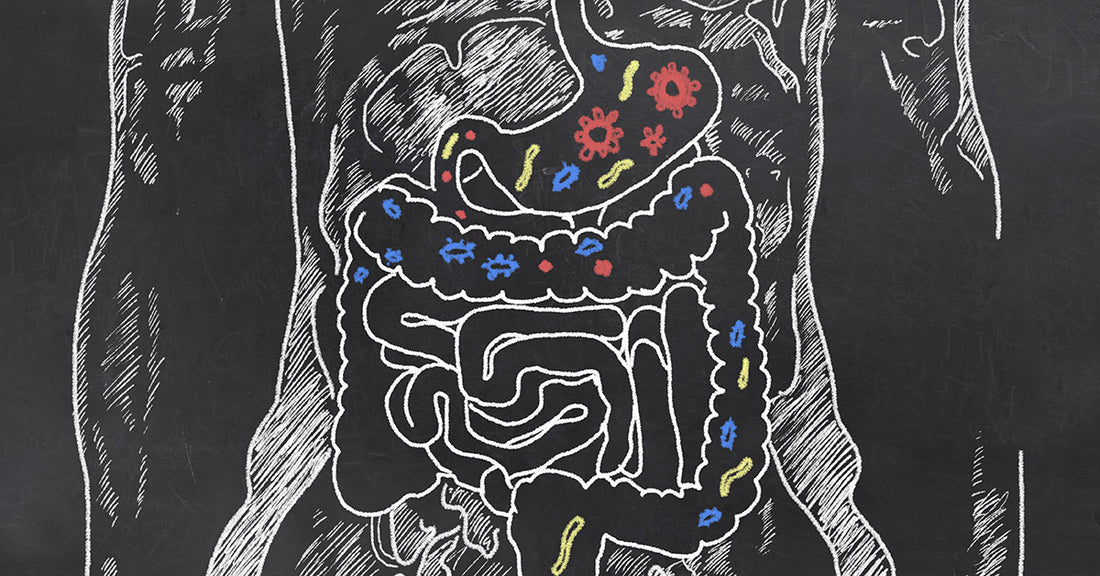You have a health problem and can’t quite determine the cause. Maybe you’ve been tested for a number of conditions and they’ve come back negative. Maybe you’ve been diagnosed with Celiac disease, IBS, or IBD.
Whatever the case, there’s something going on in your body and you and your doctor are having trouble putting your finger on it. You could have Leaky Gut Syndrome.
Leaky Gut Syndrome is fairly common, yet is not considered a legitimate medical diagnosis. This means that there is not a lot of information about it, and it can be difficult to determine the length of time it takes to heal from the condition.
Also known as increased intestinal permeability, Leaky Gut Syndrome often correlates with Celiac disease. It can cause a number of physical and mental issues that greatly affect the life of the sufferer.
What is Leaky Gut?
Your gastrointestinal tract, which is your gut, contains a lining that acts as a barrier for your bloodstream. Essentially, it controls what reaches your bloodstream and what is kept out of your bloodstream.
This lining keeps toxins, bacteria, antigens, and food that is only partially digested, from entering your bloodstream. However, if this lining obtains holes or cracks, it begins to leak. These leaks allow the negative bacteria and such into the bloodstream.
When the bloodstream becomes contaminated with them, changes with the normal bacteria, also known as the gut flora, occur. These changes cause problems with the digestive tract, inflammation, and other issues.
While leaky gut is not typically recognized by medical professionals as its own condition, it is recognized as a symptom of other conditions, such as:
- Celiac disease
- Irritable bowel syndrome
- Inflammatory bowel disease
- HIV
- Crohn’s disease
- Ulcerative colitis
- Rheumatoid arthritis
- Multiple sclerosis
- Type one diabetes
Whether considered a symptom or its own condition, leaky gut is said to cause a number of issues, including allergies, depression, chronic fatigue syndrome, skin disorders, and fibromyalgia.
What are the symptoms of leaky gut syndrome?
Leaky gut syndrome can cause numerous issues, both physical and mental.
Abdominal pain, diarrhea, weight loss, bloating, constipation, fatigue, nausea, vomiting, and blood or mucous in stool, are all common symptoms of leaky gut.
The underlying cause of the syndrome has an affect on what symptoms are experienced by the sufferer.
How to heal leaky gut (and how fast you can do it!)
As there is no recognized condition for leaky gut, there is also no specific, approved treatment. However, leaky gut is sometimes treated as a symptom of a separate, underlying condition, and therefore the treatment for leaky gut often lies in the treatment for the condition.
Conventional medical regimens would try to treat the underlying cause. Treatment for leaky gut from Celiac disease is typically a gluten-free diet. Treatment that may help the leaky gut of those diagnosed with IBD includes anti-inflammatory drugs, immune system suppressors, antibiotics, and supplements. Treatment that may help the leaky gut of those diagnosed with IBS includes antidepressants, tricyclic antidepressants, anticholinergic medications, SSRIs, and medications designed specifically for IBS.
Leaky gut may also be treated by eliminating specific, inflammatory foods from the diet that could potentially be damaging the gut flora regardless of the underlying pathology. Foods to reduce include high-fat or high-sugar foods, processed foods, gluten and dairy, as well as alcohol. Healing may come faster with the addition of probiotic and prebiotic foods such as yogurt, kefir, berries, bananas, and kimchi.
As these are not specific treatments for a recognized condition, and many of the recommended treatments are lifestyle changes, it is difficult to determine the amount of time that it will take for healing to occur. Often, healing depends on how long it takes to get the underlying condition under control.
For the quickest healing, sufferers need to begin making essential changes as soon as possible, as well as taking any regimens and supplements that they were prescribed. The sooner the underlying causes of leaky gut syndrome are healed, the sooner overall healing will occur.
References & Disclaimers
✝✝This noted statement is based on independent research and is not necessarily the opinion of the author
